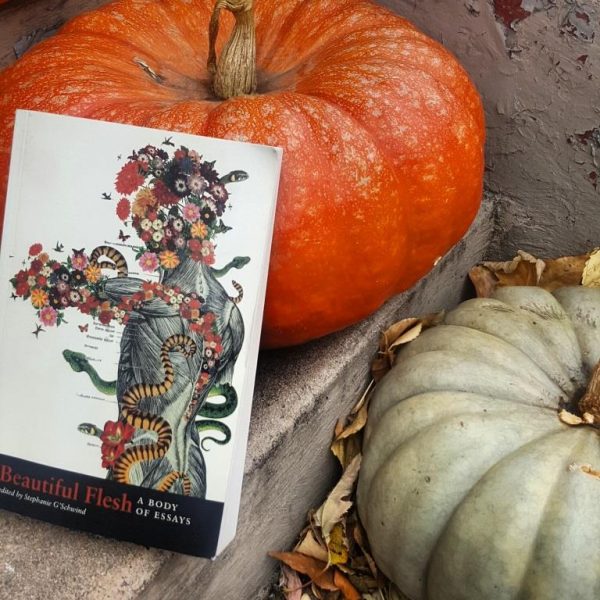Last spring, CSU’s Center for Literary Publishing (CLP) released a collection of nonfiction essays titled Beautiful Flesh: A Body of Essays, edited by CLP Director Stephanie G’Schwind. As G’Schwind explains in her introduction, “With an oblique nod to Victor Frankenstein, I decided to build a body. Out of essays.” The title is drawn from Wendy Call’s essay “Beautiful Flesh,” a meditation on the pancreas: “gorgeously ugly, hideously beautiful: crimson globes embedded in a pinkish-tan oval, all nestled on a bed of cabbage-olive green, spun through with gossamer gold.”
These twenty essays move the reader through our bodies, working together to “build a multi-gender, multi-ethnic body out of memoir, personal essays, and lyric essays, each concerning a different part of the human anatomy: hair, brain, sinuses, eyes, nose, ears, teeth, spine, lungs, heart, blood, bones, hands, skin, pancreas, belly, ovaries, vas deferens, knees, and feet.”
Two essays, “Mos Teutonicus” by Matthew Ferrence and “Shock to the Heart, Or: A Primer on the Practical Applications of Electricity” by Katherine E. Standefer, were first published in earlier issues of Colorado Review. These stories sparked inspiration for the resulting collection, working to analyze the body not as a whole but as each of its specific parts.
“Mos Teutonicus,” the title of Ferrence’s essay, references the medieval practice of boiling flesh from bone. Ferrence moves through his memories of bones, like the image of the deer carcass he found behind his house and breaking his arm as a child. These images of bone, something that can be set in place and heal, are contrasted with the discovery of his son’s cerebral palsy, something that cannot be fixed.
Standefer’s essay “Shock to the Heart” explores electricity, building from an experience where it was sent to her heart, and how that electricity alters and interacts with the body.
While some of these essays revolve around overcoming the body, themes of beauty and astonishment emerge and these experiences become beautiful in their own way.
“Field Note” by Vicki Weiqi Yang walks us through her hair loss during a time she only refers to as the “brain thing.” Peggy Shinner’s “Elective” has her 60-year-old-self reflect on the nose job she got when she was sixteen. There is no regret and Shinner is proud of her new nose, but that surgery has altered her perception of noses. The hair and the nose now become another piece of the body constructed through Beautiful Flesh.
The included essays are extremely raw and vulnerable. Each writer unabashedly shares their story, and through these testimonies we reflect on how pieces of the body can work both independently and together.
